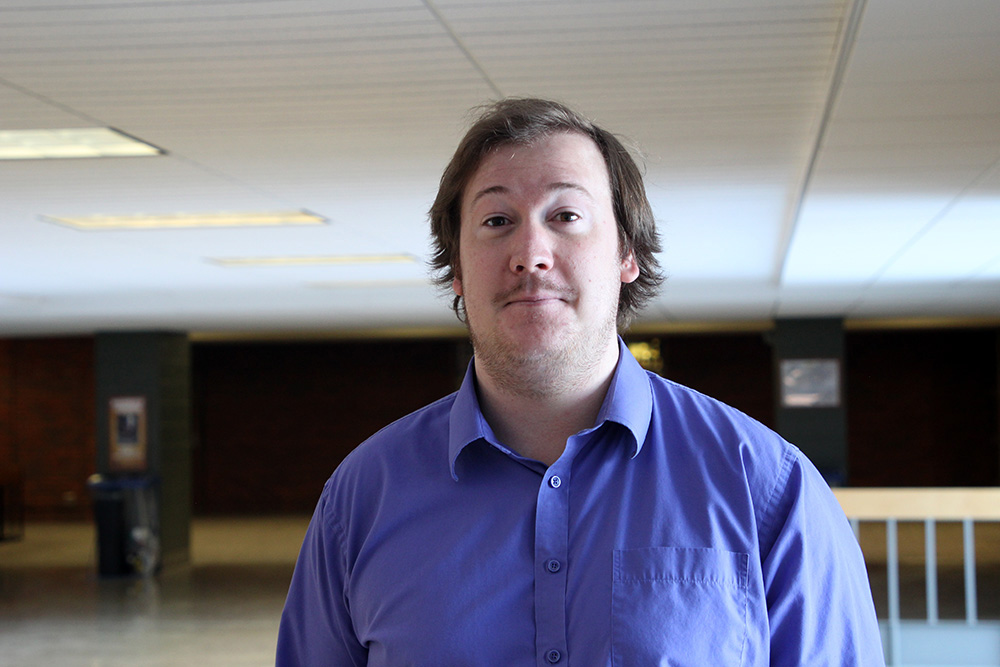Spencer Louwagie, head esports coach, is no stranger to competitive video games, hosting the now defunct SMSU “League of Legends” Club during his junior year, while majoring in computer science at SMSU. He later joined the TRC as a MAC specialist.
One day, SMSU held a meeting about possibly starting an esports team “It was more of a discussion, no one knew anything about it. I raised my hands and answered a few questions. Then they kind of just gave me the mic.”
Louwagie has decided this year to move into a full-time coaching position. “I thought I would be the IT guy to help set up the program, not the head coach of the program.” SMSU investigated many other universities’ esports programs. “What I didn’t realize was that they were interviewing me for the job by taking me with.”
Due to the ever-evolving nature of online video games, many challenges arise from trying to keep on top of every game provided in the program. “There’s so much going on in the gaming space. These games take a significant amount of effort to stay up to date with.”
Recruitment with both students and volunteer coaches also provides many challenges “We haven’t had a Valorant coach for the last year, which means I have to be the expert on Valorant. I have to spend a lot of time adjusting to what we have available.”
Despite this, Louwagie has never lost focus on the team’s main goal “The main attractiveness of esports to me, is you can serve the students who haven’t been served traditionally.” Louwagie emphasized, explaining why the esports program was so important to him and why he made the decision to devote his efforts to improving it. “Maybe I’m a student who doesn’t like sports, but I still have a competitive drive. We are giving those students a competitive outlet.” Whether you are a star Valorant player or a novice League of Legends fan, the program makes room for everyone.
Including those who just cannot make the time commitment. When the teams play, their matches are streamed on the platform “Twitch.” The esports team casts their matches with students as part of the broadcast team, letting them participate without having to play any of the games themselves. “They can stop by for two hours every once in a while, to do some casting. It allows them to stay involved and still have fun with the program.” Former students are given opportunities to stay involved. “We traditionally hire ex-students as coaches.”
Stormy Pierce, a social work major, who is an asynchronous student, and also an active participant of the program since last year. “I feel like I miss out a lot on the social aspects of campus life.” Pierce states, “My experience with SMSU is that its very campus life based. To my experience there hasn’t been online component.”
The esports program has provided her with many opportunities including scholarships. She said, “Joining the esports team has been one of the most meaningful ways I’ve connected with students at SMSU. I don’t think I would’ve had any actual conversations with other students if it wasn’t for the esports team.” Louwagie added, “We want to be a competitive team that has fun and allows you to be include in something you care about.”
The team now prepares for the next season, where Louwagie plans to introduce a new team for the game “Marvel Rivals. Louwagie shared, “It’s really impactful to me, it’s important for people to have these avenues to be proud of themselves.”



Horacio • Oct 27, 2025 at 2:34 pm
Fantastic article highlighting the passion and dedication of Coach Spencer Louwagie and the growing SMSU Esports Program. It’s inspiring to see how Spencer transformed his technical background and love for gaming into a full-time coaching role that gives students a sense of belonging and competition. His commitment to creating inclusive opportunities for all students—whether players, broadcasters, or volunteers—shows the true spirit of what collegiate esports can be.
Great work, Spencer, and kudos to the writer for capturing this story so well!